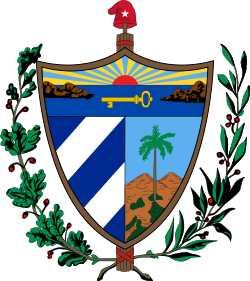 |
|---|
Visitors to Cuba must obtain an e-Visa unless they are citizens from one of the visa-exempt countries or citizens who must obtain a visa from one of the Cuban diplomatic missions.
Contents
- Visa policy map
- Cuban nationals
- Visa exemption
- Ordinary passports
- Travelling on duty
- Non-ordinary passports
- Future changes
- Electronic Visa (e-Visa)
- Tourist card
- Kosovo
- See also
- References
All visitors, including those with Cuban nationality residing outside Cuba, must hold valid return tickets and proof of medical insurance. Non-Cuban passport holders must also provide proof of financial solvency of at least USD 50 per day.
To enter Cuba, the "expiry date" of the passport must have for at least 6 months from the date of arrival.


